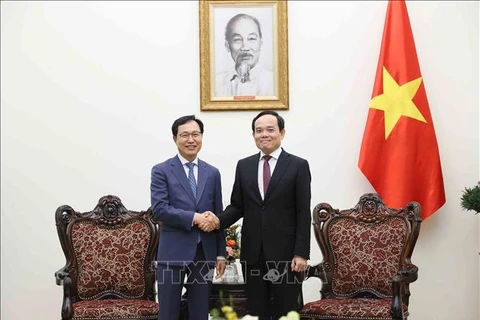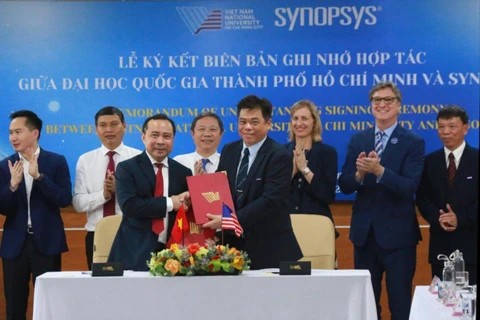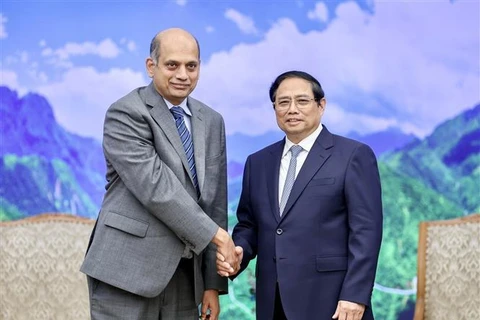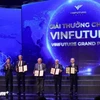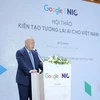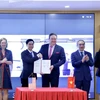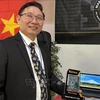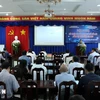Hanoi (VNA) – The establishment of a semiconductor technology training programme is emerging as a trend among Vietnamese education institutions, aiming to meet the market's demand for skilled engineers in the field.
Deputy Minister of Education and Training Hoang Minh Son said although this training area is not entirely new, with major universities offering such programmes for many years. However, the number of students enrolling and graduating remains very low. The shortage of high-quality human resources, especially in high-tech fields, is a bottleneck in attracting large corporations to shift their research, development, and manufacturing investments to Vietnam.
About 35 local higher education institutions have the capacity to join the trend, with more than 10 currently offering semiconductor training programmes.
Leading universities with experience in engineering and technology disciplines, such as the Hanoi University of Science and Technology, Vietnam National University, Hanoi and Vietnam National University, Ho Chi Minh City have well invested in their contingents of lecturers and infrastructure, including laboratories. Meanwhile, to get involved in the promising area, many of their peers are making efforts to prepare infrastructure, utilise existing human resources from related fields, recruit new lecturers, and invest in laboratories and practical training.
Son emphasised that the immediate task, first and foremost, is to enhance the capacity of higher education institutions, particularly regarding lecturers, infrastructure, technology, training programmes, and software tools.
Collaboration between universities and businesses is also considered among key strategies for continuously improving the quality of human resources.
Recently, the University of Engineering and Technology under the Vietnam National University, Hanoi and the Republic of Korea-based conglomerate Samsung Electronics signed a cooperation agreement to implement the VNU-Samsung Technology Track (V-STT) scholarship programme, which helps outstanding students pursue master's degree training in the semiconductor and microchip fields. After graduation, they will be enabled to work at Samsung's semiconductor chip division in the Republic of Korea.
The opening of semiconductor and microchip training programmes seem to be a timely move at present. However, many experts also advise against universities hastily following the trend. They said the quality of graduates and post-graduation job opportunities require careful consideration./.
